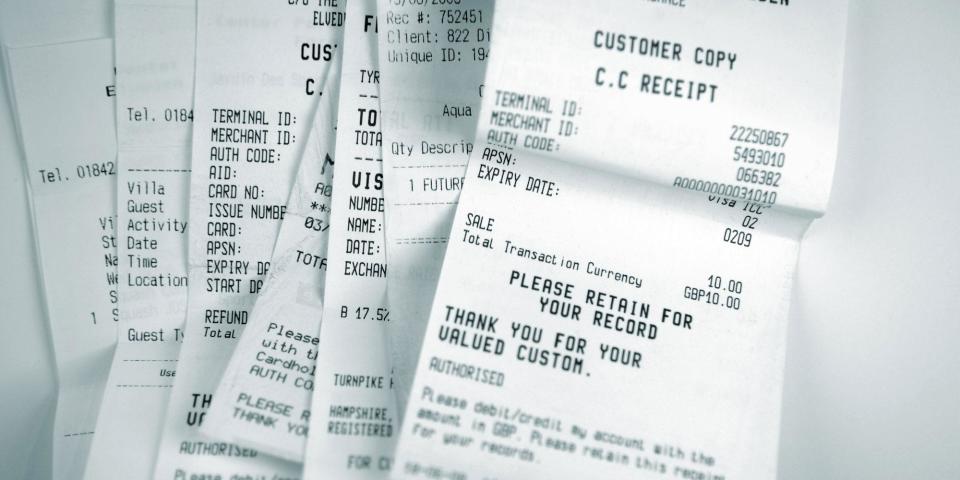This is why recycling receipts can actually be worse for the planet

Most receipts have been found to contain BPA, a toxic chemical
(iStock)If you’re wondering what to do with those three-foot-long receipts from CVS, the answer might not be to recycle them.
That’s because most receipts these days – especially the endless scrolls printed out by pharmacies – are made with “thermal paper,” a shiny material that allows businesses to print text not with ink, but with heat.
The problem is thermal paper contains a chemical called bisphenol A, or BPA, which has been found to disrupt the endocrine system. And it’s not just in a few proofs of purchase – a recycling study ten years ago found that 94 per ent of receipts in the United States and three other countries contained BPA.
So why not recycle them? Because even the rigorous process of paper recycling can’t get rid of BPA, experts say. To avoid letting the toxin seep into new paper products, many states and cities just don’t allow thermal paper to be recycled. Meanwhile, receipts from the United States and Canada add 33.5 tons of BPA to the environment every year.
But if they can’t be recycled, what should we do with all these receipts? One concerned citizen asked Recyclebank, a recycling information resource.
“Check with your local waste hauler to see if they have rules about it, but if in doubt, keep your receipts out of the recycling bin,” the website wrote back.
But to avoid adding to the problem, Recyclebank said, try to avoid getting so many receipts in the first place.
“If paperless e-receipts are an option, consider having one emailed to you instead of getting a printout,” the site suggested. “Otherwise, ask your cashier if you can forgo the receipt entirely, then track the purchase manually or with a mobile app, for your budgeting. If you’re a regular at a local business, you may even want to explain the risks and issues of thermal paper and ask if traditional receipt paper and ink would be a workable option for them.”
Local governments could also step in. Before the coronavirus pandemic pushed all other concerns aside, New York City lawmakers were considering a ban on paper receipts.
“Nobody needs foot-long receipts,” City Council Speaker Corey Johnson said in December 2019. “We will work with businesses and consumers to cut out paper receipt waste and protect the planet.”
Just a few months later, New York businesses were shut down and paper receipts – along with a ban on plastic bags – were the last thing on most people’s minds.
But as the world re-emerges from Covid-19, it may be time to reevaluate what we do with all those miles of crinkly paper.
Read More
Greensill: ‘All decisions taken by the bank were made independently’, minister says
The poisoned clouds suffocating the people of Iraq
Climate crisis linked to rise of hybrid ‘pizzly bear’

 Yahoo Finance
Yahoo Finance 